Frequently Asked Questions
The lack of knowledge about the reality of life in an orphanage leads many well-meaning donors to continue to support them. The key to changing the way we care about children worldwide is knowing the truth about orphanages. Below you will find answers to the most common questions.
Orphanage Information
Are all orphanages bad?
This is a tricky question. All children need to be raised with a stable family and a community support system. An orphanage is an institution whose caregivers come and go on a rotating basis and who cannot give each child the individual attention that a parent can give. Even in the best orphanages children do not get the attention they need to develop mentally and emotionally. As a result, they often grow up into adults who never reach their potential. Sixty years of research show that all orphanages are not good long-term solutions for raising children.
How can you tell if an orphanage is bad?
Although orphanages are never good developmental places for children, it doesn’t mean they are all abusive, neglectful, or dangerous. However, many are just that. An orphanage should never be a business, but rather a temporary stop for children on the way to a loving family—either their own or an adoptive one. An organization operating in the best interests of the children will have a child protection policy in place, will be properly registered with the government, and will operate legally. Additionally, a legitimate organization that serves vulnerable children will never allow outside visitors like tourists or unskilled volunteers to spend time with the children because they know children deserve privacy and protection.
Is it true that most children in orphanages are not orphans?
Unfortunately, this is true. Years of research show that 80 to 90% of children in orphanages worldwide have at least one living parent.
What is the orphanage crisis?
The orphanage crisis refers to the escalating number of orphanages that are popping up all over the world at the same time that fewer and fewer children are being orphaned. We know a high percentage of these orphanages are foreign owned, often unregistered, and often illegal. For example, Uganda had 39 orphanages in 1999. Today, there are between 600-800 of them, about 30% are registered and we know most of them are foreign owned. The number of orphans, especially from AIDS, has steadily decreased during this same time. The truth is that orphanages are a profitable business and foreigners, however well-meaning, are driving this burgeoning industry.
What is the history of this crisis?
The cultural norm in most countries, even the poorest ones, is to rely on children’s extended family or their own communities to care for them outside of his or her immediate family. Often referred to as “kinship care,” this is when the larger community steps in to collectively care for an orphaned child, providing family-based care. However, the recent rise in extreme poverty, on-going conflicts, famine, disease, AIDS epidemic, natural disasters, and underdeveloped social welfare systems, combined with population growth, is creating a crisis where communities are overwhelmed with children, without the necessary resources to care for them.
During the past several decades, well-meaning people from western countries created orphanages in an attempt to help. However, the outpouring of support and resources from the West also gave many opportunistic actors ideas for business models that would allow them to prey on impoverished families, convincing them to give up their children so they could be used to solicit donations from well-meaning donors. The large increase in the number of orphanages is fueling a dependency within governments on institutional care rather than reform and development of social welfare systems—systems that would keep families together, reunite families, or provide alternative family-based care for those in need.
Why are there orphanages in developing parts of the world but not in the United States?
The United States and most other developed nations closed their orphanages and replaced them with foster care and other family-based care programs in the 60s and 70s. However, orphanages still exist around the world where there is persistent political and economic instability, severe poverty, violent conflict, epidemics, famine, and unexpected natural disasters.
How do children who are not orphans end up in orphanages?
Violent conflict, war, and natural disasters are often sudden ways that children get separated from their families. However, more often, children are separated from their families because of severe poverty and lack of access to adequate food, shelter and education. Very often, parents are told their child will be fed and educated at an orphanage, and often that is true. But an orphanage can never replace the love and care of a family.
Why would parents choose to give their children to an orphanage?
Parents rarely want to give up their child although it may often appear that way. Parents who raise children in severe poverty, or with a disability, struggle to provide them with basic needs. Thus they feel they have no choice but to send their children to orphanages that promise a better life. These parents often live in rural areas with little support and genuinely believe they are doing the right thing. However, it is often the institutions that seek out the parents and deceive them into giving up their children.
Is it true that many orphanages are opened as money making enterprises rather than to fill a need for children with no home?
Unfortunately, this is true. For example, Uganda has seen a rise in new orphanages in the last 19 years from a total of 36 in 1999, to more than 800 today. This year, the government named 500 orphanages that are not in compliance with recent legal requirements that include registration and minimum standards. They will be shut down. The vast majority of them were started by people looking to dupe unsuspecting but well-meaning western donors and tourists. This business model uses impoverished and vulnerable children to tug at the heartstrings of westerners who are desperate to help by donating money and volunteering their time.
Is it true that many orphanages recruit children?
Yes, the unscrupulous orphanages often use “child finders” to fill the beds. They go to rural areas where poverty is severe and education is limited to recruit children by convincing parents they will give them the care and education they cannot. Parents often feel desperate. In most cases, these children will be bought or sold into situations that are far from what is promised. In the worst situations the children’s names are changed, death certificates are forged, and they are sold into slavery, and other forms of exploitation, never to see their parents again.
Should I volunteer in an orphanage?
The simple answer is no, but for several very important reasons. The most important reason is that children who live in orphanages have been separated from their families and are very vulnerable. All children need a consistent caregiver in their lives and orphanages are unable to provide that with constant staff turnover and shift changes and it only exacerbates the problem when volunteers come and go. It is harmful to the children’s development to have strangers coming in and out of their lives for short periods of time. Vulnerable children often struggle with attachment issues whether it is getting attached to people too quickly or not at all.
Orphanages that allow unskilled volunteers to come in for short periods of time to volunteer do not have the children’s best interest in mind. The best of orphanages do not allow unskilled and short-term volunteers because they understand the importance of privacy and stability for the children they serve. Additionally, by volunteering you are potentially taking away the employment of a local person and if you are paying to volunteer you are potentially funding an organization that is actually causing harm to children.
What is a “care leaver”?
Care leavers are children (usually age 18+) who have spent all or part of their lives in orphanages and other institutions and age out of the system. These young adults leave orphanages to fend for themselves even though they have never participated in or been part of a community.
Having no support and little understanding of how to function in the outside world, these young adults struggle to lead full and productive lives. Research has shown that children who live in orphanages until they are adults are 10 times more likely to end up in sex work, 40 times more likely to have criminal records and 500 times more likely to commit suicide.
About ChangingTheWayWeCare.org
Where does Changing the Way We Care work?
Changing the Way We Care℠ is a movement designed to promote family-based care. In October 2018, the team began working in three countries: Moldova, Kenya and Guatemala. In all three countries we see great opportunity to make real change. As funding becomes available, we will strategically expand our program to more countries where we have government and civil society support.
How do you monitor and evaluate your work?
We have clear goals for how many children we will return to family care, and we keep close measure on the results. It is also important for us to monitor how well the children are doing once they are home. To do this, we regularly visit the children to make sure they are safe and that they are getting the support they need. If they are not, we follow up to get them the needed support. In rare cases where the family cannot properly care for the child, for any reason, we look for an alternate placement. The goal is a safe and loving home for every child.
How do you select partner organizations?
We start by looking closely at the services a local partner is able to provide. We meet with their staff and talk to others about their performance. Usually partner organizations are well known in a country and it is easy to learn about them. We only partner with organizations that have a child protection policy and plan. If they don’t, they need to be willing to develop one either on their own or with our support. The safety of the children is always our top priority.
Why Donate?
Why should I donate to help solve the orphanage crisis?
It is very common for unknowing and well-meaning individuals and organizations to donate directly to orphanages which perpetuates the orphanage crisis rather than helping to solve it. All orphanages are unable to meet the emotional and developmental needs of the children they serve and 80-90% of the children they serve have at least one living parent. These children deserve to be with their families! Those who want to help these vulnerable children should donate to organizations who are reuniting children with their families, are supporting families to stay together, and are working to solve the overall orphanage crisis…like Changing the Way We Care℠!
Why should I choose ChangingTheWayWeCare.org?
If you are looking to donate to an organization that is dedicated to solving the orphanage crisis, please consider Changing the Way We Care℠. In this global movement, CRS and Maestral have come together to bring decades of experience and expertise, working with vulnerable children around the world, to promote family-based care. We have started our work in Moldova, Kenya, and Guatemala and, as funding becomes available, we will expand to more countries where we have government and civil society support.
How do I donate?
It’s easy. Just click the blue “Donate” button at the top right-hand corner of this page Thank you for considering a donation to Changing the Way We Care℠.
Ways to get involved with ChangingTheWayWeCare.org
How do I sign up for Changing The Way We Care emails?
Return to the homepage and scroll all the way to the bottom to a section titled “Stay Connected.” Once you are there, fill in your information and click on the Sign Up button!
How can I get involved with Changing the Way We Care beyond donating?
Educating and Advocating
Understanding the issues is the first step in Changing The Way We Care. We can all inform ourselves about the current orphanage crisis around the world and understand that even in the best of orphanages, children are not getting what they need: a family. Research shows that children need the support and consistency of a loving home, which even the best orphanages cannot provide. By informing ourselves, we can turn our good intentions into good actions and do the right thing for vulnerable children. Learn More
Spreading the Word
Changing The Way We Care means changing the way people think about orphanages and vulnerable children. Widespread change is never easy or fast, however. But with your help, we can spread the word about how we are changing the way we care. Follow us on Twitter.
Hosting an Information Session
Does your church, school or community organization support an orphanage overseas? Have you ever traveled abroad to volunteer in an orphanage? Did you know that by trying to do good you may unknowingly be supporting a harmful and growing industry?
With our help, hold an informational session for your organization that will answer any questions you have about helping orphans and how you too can make an informed decision to Change The Way You Care. Connect With Our Outreach Team link
Can’t find the answers to your questions? Contact us.
Due to the high volume of inquiries, we are unable to respond personally to each one, but we will try.
Thank you for taking the time to learn about Changing the Way We Care and the orphanage crisis. We cannot do this life-giving work without you!


